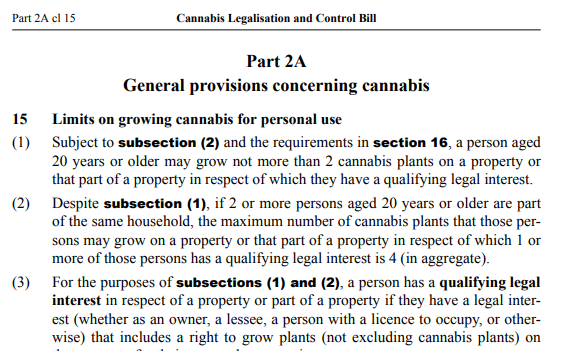
Some people, upon being told that consciousness survives the death of the physical body, say: so what? The really interesting question is what the order of reality looks like on the far side of death. This essay discusses an ancient concept – the Law of Associative Reincarnation.
A person’s frequency of consciousness determines the sort of reality they manifest. This is true in life, and it’s true in death.
In life, this rule is known as the Law of Attraction. This holds that (among other things) a person’s frequency of consciousness repels both higher and lower frequencies, so that people tend to attract other people like themselves. Angry people attract angry people, humble people attract humble people and curious people attract curious people.
This law holds that the energy you put out into the world will be the same as the energy that comes back to you from the world. Reality will come to manifest itself according to your thoughts, because thoughts lead to actions. If you dwell on bad things, they will come. If you dwell on good things, they will come.
In death, we might call this rule the Law of Assortative Reincarnation. This is a very similar concept to the biological concept of assortative mating. This refers to the observation that, in sexually reproducing species, mating tends to occur between individuals that have important things in common. Tall people tend to mate with other tall people, pretty people with other pretty people, smart people with other smart people etc.
In order words: we attract, on the other side of death, the same sort of beings that we attract on this side of death. This we do by means of the frequency that we project into the world.
When a person’s body dies, their ego dies with it, and so the person no longer has the part of the mind that lies and makes unjustified excuses for itself. After death, consciousness returns to God – and to God’s judgment. Being without ego, people don’t question God’s judgment on the other side of death. Consequently, they accept their fate.
Although God is without malice, the fact is that every person, when stripped of ego, will agree that they ought to get what they deserve. The fairest thing for every sentient being is to live in a reality filled with beings on the same frequency of consciousness as themselves. God facilitates this. Some call this the Law of Karma, and this law underpins both the Law of Attraction and the Law of Associative Reincarnation.
The frequency of consciousness that a person is at when the death of the physical body occurs is the same frequency of the part of the Great Fractal that that person will reincarnate into. All the beings that populate the next world that a person reincarnates in are fractal expressions of that person’s own frequency of consciousness – and that person is a fractal expression of all those other beings.
The Law of Assortative Reincarnation holds that people reincarnate into worlds with the same frequency as themselves. This means that people reincarnate into worlds populated by beings at a similar frequency. Some will be lower, and some will be higher, but the average will be similar to one’s own. Thus, each being is assigned to the part of the Great Fractal that is appropriate for their frequency of consciousness.
Shocking at it may sound to some, the Universe is perfectly just – but only at high levels of resolution, such as when one observes chunks of multiple lifetimes. At low levels of resolution, such as a mere decade, it can appear extremely unjust. This is why short-sighted and materialistic people are often preoccupied with some grievance or other.
This means that people really do get what they deserve. People who are cruel will adopt a frequency that reflects cruelty. Consequently, they will attract cruel people into their lives and will repel kind ones. People who are kind will adopt a frequency that reflects kindness. Consequently, they will attract kind people into their lives and repel cruel ones. This is true on both sides of death.
A person may or may not get punished legally for acts of cruelty, but they always get punished spiritually. This is because acts of cruelty transmute a person’s consciousness into a cruel frequency, and that attracts similar beings, who then inevitably treat the cruel person the way they treated others. It’s impossible to transmute one’s consciousness into a cruel frequency and attract kind people. It might be possible to temporarily do it by tricking them, but they will never intuitively trust a cruel person.
If a person wants to go to heaven after they die, or at least wants to reincarnate in a world with less egregious suffering than here on Earth, they need to perform enough works of alchemy to transmute their consciousness into a level where it would be heavenly to be around that person. Are you the sort of person whose frequency would create a heaven? If not, you don’t deserve to live in one.
Understanding the Law of Assortative Reincarnation means that one would never complain about the nature of life on this Earth. This Earth may be cruel, and it may be brutal, but the reason why everyone incarnated here is because of the frequency of consciousness that we cultivated in our past lives.
If a person thinks that the world is too cruel (and who doesn’t?), it’s impossible to change things by suicide. Committing suicide simply means that one will incarnate in a world where other beings are inclined to commit suicide. Because suicide is a cruel thing to do, one will therefore incarnate around other cruel beings and will not have escaped the cruelty of Earth.
The correct thing to do is to transmute one’s frequency of consciousness from the basest, most egotistical level to the highest and most noble one. This will ensure that one attracts other beings on that level, whether on this side of death or the other. The easiest way to do this is to focus on alleviating the suffering of one’s fellow sentient beings.
*
If you enjoyed reading this essay, you can get a compilation of the Best VJMP Essays and Articles of 2018 from Amazon for Kindle or Amazon for CreateSpace (for international readers), or TradeMe (for Kiwis). A compilation of the Best VJMP Essays and Articles of 2017 is also available.
*
If you would like to support our work in other ways, please consider subscribing to our SubscribeStar fund.



